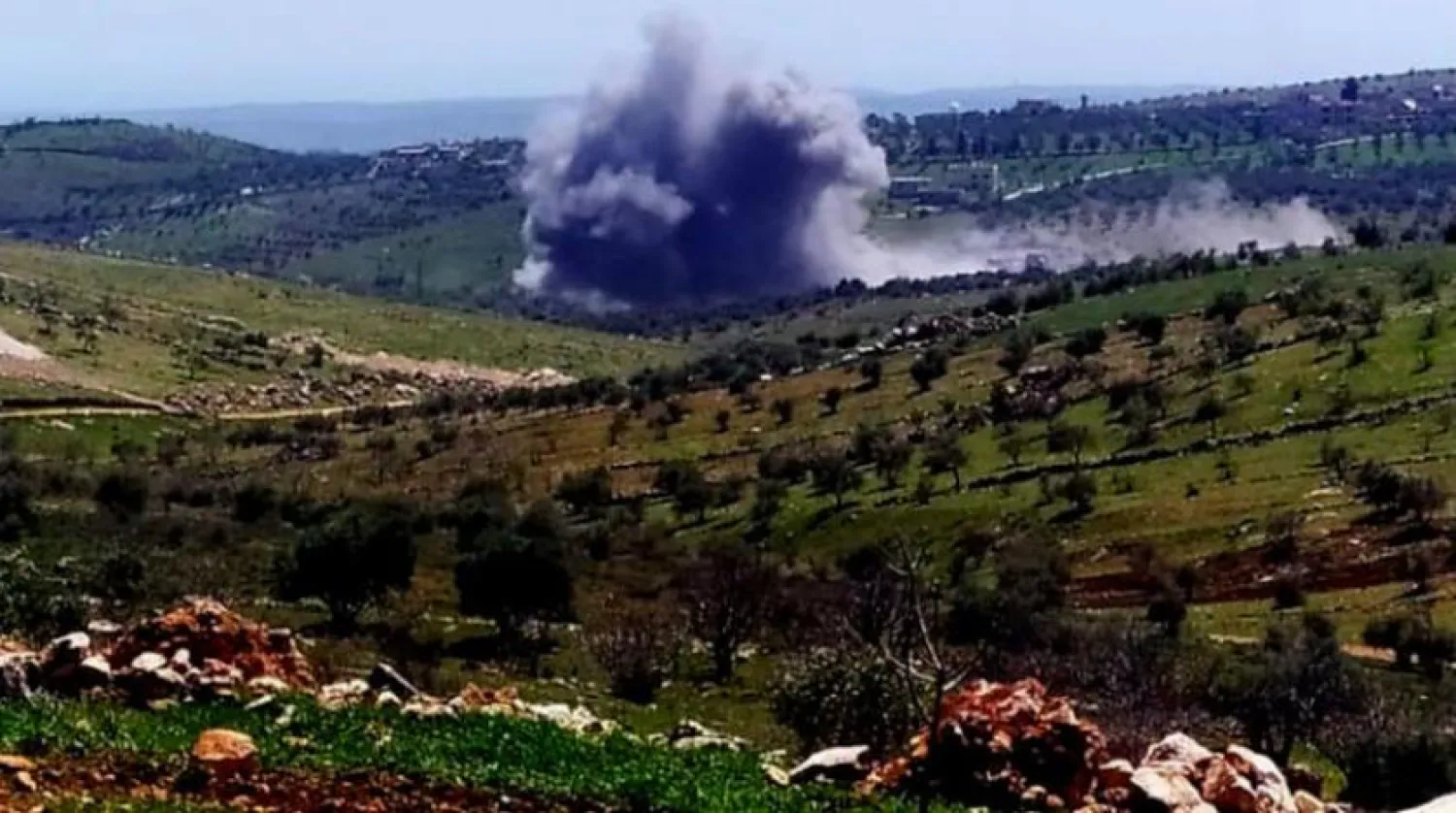Russian and Syrian regime warplanes targeted ISIS sites in the Syrian desert, within the administrative regions east of Homs, Raqqa, and Deir Ez-Zor, coinciding with Russian raids in Jabal al-Zawiya, south of Idlib.
Regime forces and affiliated militias also targeted the countryside of Idlib and Aleppo, northwest Syria.
A source in eastern Homs said that the Russian fighters, along with helicopters of the Syrian regime forces, carried out about 90 airstrikes, during which they targeted sites of ISIS fighters in Deir Ez-Zor and Raqqa countryside from the southern side and other areas in Homs.
He added that the Russian and regime escalation on ISIS remnants in the middle of the Syrian desert came after they lost contact with a group affiliated with the Afghan Fatimiyoun Brigade.
It coincided with massive military reinforcements of the Iranian Revolutionary Guard Corps (IRGC) and forces affiliated with the Fourth Division.
The forces combed the areas from al-Sukhna to the Iraqi-Syrian border and failed to find the group.
The source explained that massive military forces affiliated with the regime’s Fourth Division, Iran-affiliated groups, and the Lebanese Hezbollah units are preparing to launch a new combing operation within Homs, Raqqa, and Deir Ez-Zor.
The groups want to search the area for ISIS remnants to curb its recent activity, which targeted military convoys of the regime and Iranian-backed militias on the Deir Ezor-Sukhna road, east of Homs.
The Syrian Observatory for Human Rights (SOHR) indicated that four days ago, Russian warplanes launched more than 40 airstrikes on the Syrian desert, totaling 172 raids since the beginning of April.
Activist Mulhem al-Hassan reported that the Russian fighters carried out a series of air raids with high-explosive vacuum missiles on areas around Sufuhun, al-Fatirah, and Flaifel in Jabal al-Zawiya, south of Idlib.
He indicated that violent clashes erupted in the Lattakia countryside between the two parties with heavy artillery, tanks, and rocket launchers, amid reports of casualties among the regime forces.
Hassan pointed out that a new Turkish military convoy, including armored vehicles, personnel carriers, and logistical trucks, entered the Syrian territory from the Kafr Losin crossing.
The vehicles were distributed to several Turkish military bases and other units in Jabal al-Zawiya and west of Aleppo, during which a military convoy of the Turkish forces entered the military points near the Aleppo-Latakia international road (M4).









